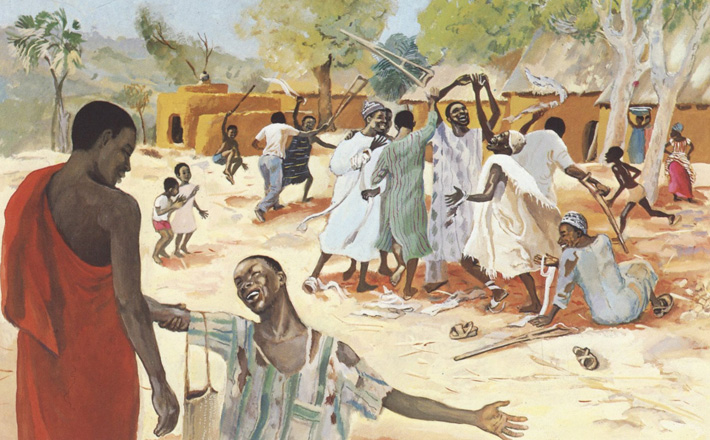Commentary on Psalm 111
Psalm 111 is a classic psalm of praise extolling the virtues of God presented as the praise of a single individual.
It is a Hallel, one of the psalms that begins with hallelu Yah, “Hallelujah” (Psalms 104–106; 111–118; 120–136; and 146–150). Other psalms from this group are part of the festival lectionary of the Jewish people for the major observances of Passover, Pentecost, and the Feast of Booths/Tabernacles.
This psalm roots praise of and for God in God’s “works” and “deeds,” using a variety of terms that are translated in similar ways. In verse 2 God’s works are not further described, but the expression evokes creation, exodus, deliverance from enemies, and entering into a covenant with Israel (see Exodus 34:10, where the same expression is used).
Verse 3 uses what is regarded as a more poetic word for “work,” which, when combined with the adjective “majestic,” suggests the expanse of creation. Verse 3 also lauds an essential attribute of God, inexhaustible righteousness.
Verse 4 introduces a third term for God’s works, one that means “wonders” or “marvels.” If the unit on God’s works and deeds in verses 2-4 builds to a point, that point is the fundamental nature of God as gracious and loving at the end of verse 4.
The description of God as “merciful” in verse 4 does not do justice to the underlying Hebrew. The root of the word rachum is the word for “womb,” rechem. It is both the organ and the feeling that emanates from it in the same way that “headache” signals a body part and a feeling.
I translate rachum as “mother-love,” while others, like Phyllis Trible, translate it as “womb-love.” In the famous story about Solomon and the two sex-workers, it was the birth mother’s “mother-love” that motivated her to surrender her child to the other woman, though it is often poorly translated as “mercy” or “compassion” (1 Kings 3:26). This type of love is one of the two primary forms of love that God expresses for humanity (see Exodus 33:19; Deuteronomy 30:3; 2 Kings 13:23; Isaiah 14:1; 30:18; 49:15; Jeremiah 31:20).
The next few verses detail the ways in which God mother-loves. In verse 5 God feeds humanity, but not with just anything. The psalmist chooses a word that indicates that God hunts meat (literally, “prey”) for God’s carnivorous offspring. Taking prey is often the work of lions (Genesis 49:9; Ezekiel 19:3; Nahum 2:12), but also the work of the warrior-hearted woman in Proverbs 31:15. God’s care and concern are shown to be holistic in that God provides physical and communal support, the latter in maintaining God’s covenant with God’s people.
The psalm circles back to the works of God, framing them as evidence of God’s graciousness and mother-love in verses 6-9. Now the language become more specific to Israel, celebrating the dispossession of Canaan in verse 6 and “redemption” in verse 9, which is a likely reference to the exodus, along with a second reference to God’s covenant and people in verse 9. Verse 9 ends by proclaiming the holiness and fearsomeness of God’s unutterable Name (provoking awe or fear rather than being “awesome”).
God’s name is never spelled out in Hebrew with vowels; only the consonants YHWH appear. Instead, Hebrew readers pronounce the word for “lord,” adonai, which is where the title “Lord” comes from in the text. It replaces the name that cannot be uttered. While some contemporary scholarship supplies what they believe to be the missing vowels, the practice is considered greatly disrespectful in Judaism and is likewise avoided by many non-Jewish scholars. The description of God’s name as “fearsome” or “awesome” in verse 9 points back to the people who “fear” God in verse 5; both words have the same root.
Verse 10 continues to reflect on the proper fear of or reverence toward God, citing a proverb that appears repeatedly throughout the scriptures, that fear of the Lord is the beginning of wisdom. That saying occurs in Proverbs 1:7; 9:10; 15:23; Job 28:28; Micah 6:9; and repeatedly in Sirach: Sirach 1:14, 16, 18, 20, 27; 15:1; 19:20; 21:11; 25:10. The psalm ends with the observation that God’s praise will outlast all things, including the psalmist’s own praises.


October 9, 2016